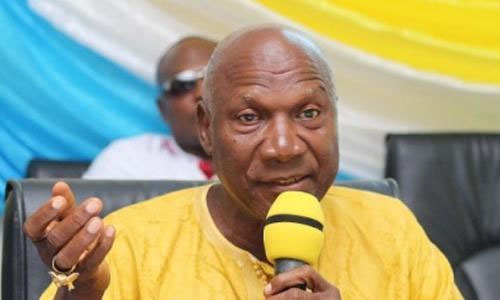But for what I describe as a brief stint with the profession in which the practitioner is at all times surrounded and sustained by books, my entire working life was about instructing, popularly known as teaching. I started full-time work as a pupil teacher and retired a university teacher. That is how come it was a jolt when I read someone, who claims to have succeeded in life describing a certificate she obtained from an institution of higher learning as ‘rubbish.’
Same day I read the story, I had exchanged views with a friend on a WhatsApp animated image of a schoolchild singing the national anthem in words only the singer knew and not what they are. While I insisted teachers should share part of the blame, citizen headmistress of a senior high technical school, was adamant it was more the work of peer influence, the child picking from other mimicking children he had come to meet, at his school’s assembly sessions.
Before I read the ‘rubbish’ certificated woman’s story, I had had an earlier jolt from an award-winning journalist who made a similar dumb statement. He was cocksure that university teachers, myself among, did not deserve being paid research allowance because he never saw a publication by any of the ten people who taught him. As my student, I did not tell him that what I publish is what I present in class. But, as a principle, I do not include in reading lists I generate, my own publications. I’m sure it was same with my other instructor colleagues.
That journalist and his sister with the ‘rubbish certificate’ don’t want to seek; even as journalists. They would rather have knowledge pumped into their heads. To ensure students receive appropriate and worthy certificate, a university’s life preparation structure includes lectures, practical research, practical laboratory work and practical workplace internship; one theory against three practicals. For journalism training, that is designed to bridge the gap between the classroom and the newsroom.
It is the main reason they are all compulsory aspects of every course a student takes. In all university education situations all over the world, there is an acknowledged gap between theory in the classroom and practice at the workplace. The gap is bridged by the laboratory and internship systems. But most importantly, every workplace is expected to have in place its own industry entry training system by which people who are engaged from school will be given the hands-on skills that are required for specific job positions.
So my former student journalist was the one who was derelict for nor knowing about my publications. He couldn’t claim he didn’t know because I did not tell him. It is the lack of curiosity on the part of the student that limits her/his knowledge.
In Twi, ‘otoo’ is pronounced with all the ‘o’s sounding that and not the two ‘o’s sounding ‘u’ to mean garbage as in ‘otoolɛgɛ’ (a man seen by women as a buffoon).
Perhaps, this is the moment to draw the attention of our television or visual communicators to the thought provoking assertion that the message (news) is in the look of the messenger; whether the viewer’s attention is to the message or messenger. It was a shocker to me observing newsroom practices when the newsreader who was wearing shorts donned a tie and jacket to sit before the camera to read.
That old practice recognized that optics mattered a lot. You don’t want to divert attention from the news message to the messenger. So, a newsreader was selected on the basis of being as ‘normal’ as possible. In appearance and voice there should be nothing to distract attention from the content. No fancy apparel or mouthful of names.
These days, it looks like the longer a reader’s name, the fancier the presentation. I never knew Ghartey Tagoe was also David until many years after he had left news reading. ‘Here is the news, read by Ghartey Tagoe,’ he would always say.
That was a reality justification for the talking heads format for news casting. Because the last time I saw she who was given a piece of rubbish as certificate in a promo walk towards a news anchor desk to sit and read, I was reminded of a 60-60-60 shape we used to joke with as undergraduates.
She seems to be making a case that what the institution put in her head was garbage so she graduated as garbage. I say she entered the institution as garbage and ensured she exited it in the same garbage condition.
As compatriots of the motherland, our mediocre approach to standards, leads us to choose to mix up popular journalism with professional journalism. It’s one of the factors slowing down our progress as a motherland. It confuses competence with popularity.
I just read this from somewhere: ‘a college degree is still the most reliable ticket to socioeconomic mobility, which underscores the importance of who goes there and what they learn. ‘In her case, she went there but learned nothing so she was given rubbish called certificate. Only she can testify that not a single thing taught her by all the array of teachers she must have encountered came to bear, or has ever had a bearing, on her performance on the job. I’m sure if I were to have time to observe her performance on the job, I would have a lot more to say about that.
Public exposure, as in conferment of celebrity (they call them influencers too) status, tempts bloated ego and over-priced self-worth. When the message can easily dissolve into the look; when optics matter, all temptation to overvalue the self-worth require disciplined control.
She who rubbishes the certificate she did not work for, rubbishes her integrity and casts doubt on her competence. Truly, ‘the unexamined life is not worth living.’
By Kwasi Ansu-Kyeremeh


